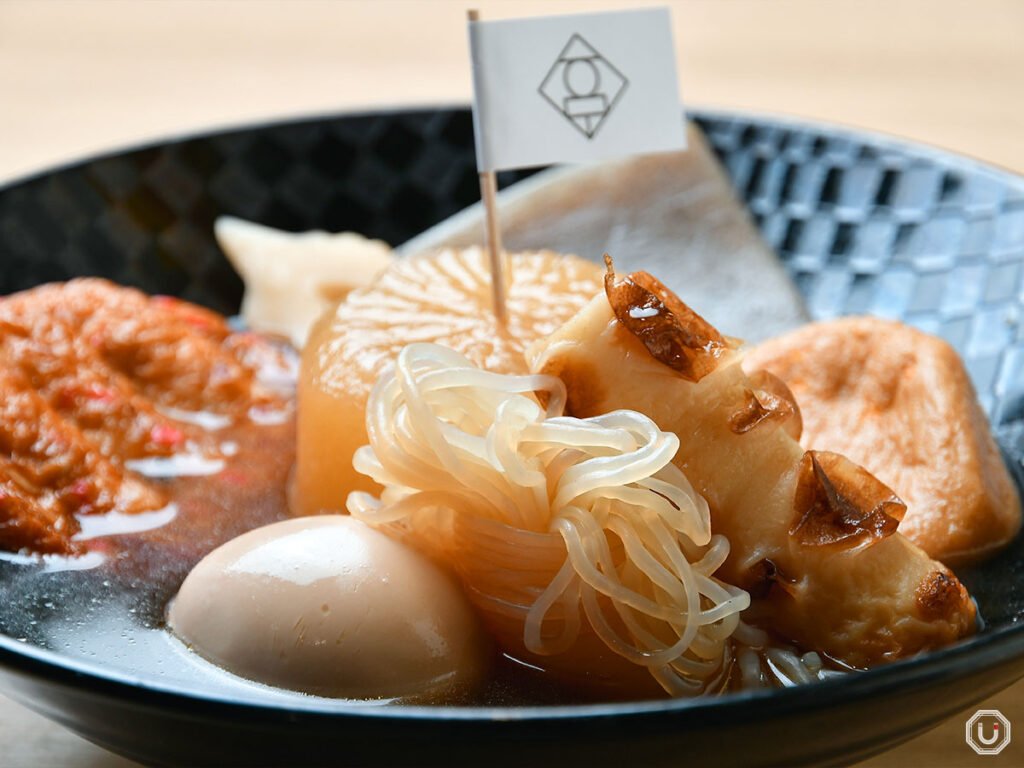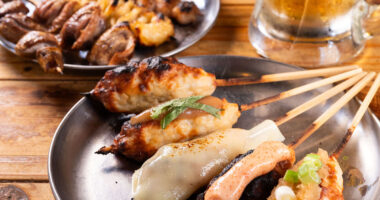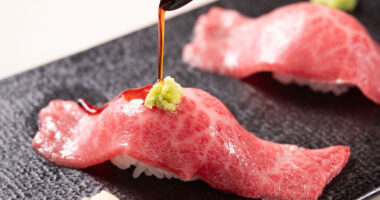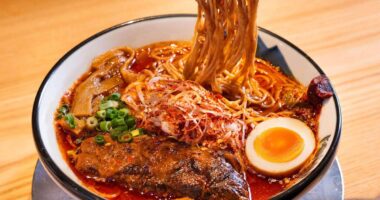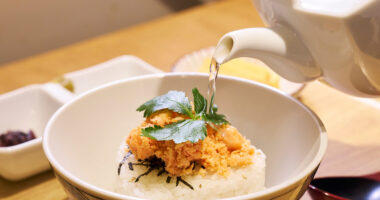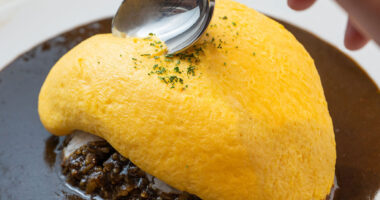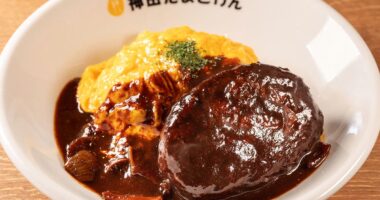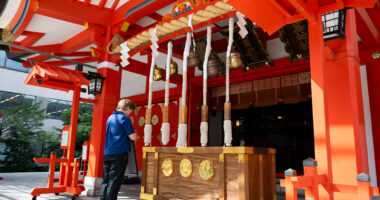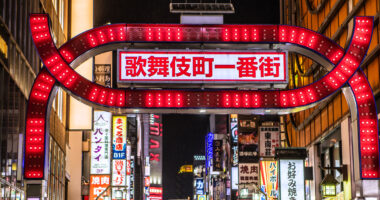Oden is one of Japan’s traditional simmered dishes. By slowly cooking ingredients such as daikon radish, eggs, chikuwa (tube-shaped fish cake), and hanpen (another type of fish cake) in a large pot, it brings out the umami of the ingredients.
While simple in appearance, this exquisite dish allows you to experience the depth of Japanese food culture through the complexity of the broth’s flavor and the combination of ingredients.
In Tokyo, you can find a wide range of oden styles—from long-standing shops preserving traditional flavors passed down through generations, to creative oden spots combining the dish with unconventional ingredients.
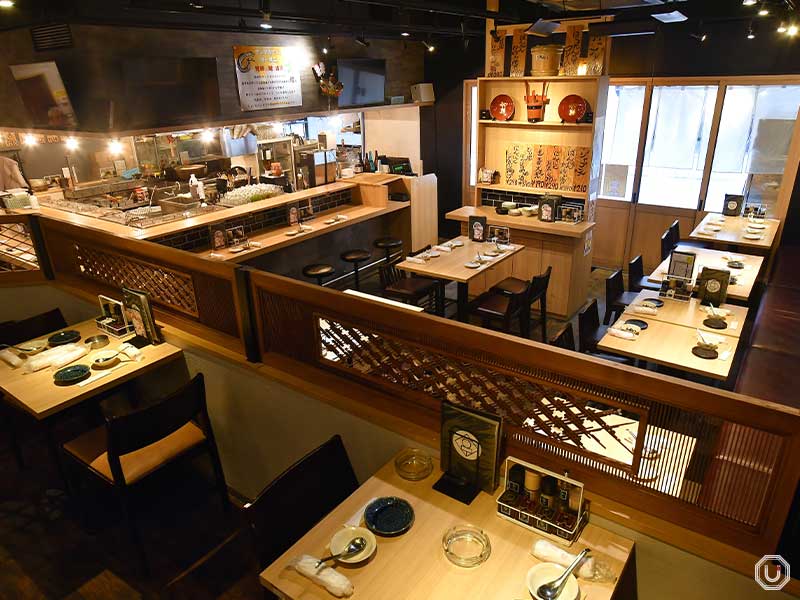
With locations in Tokyo, Kanagawa, and Akita, “Choi Oden” offers not only classic-style oden but also inventive versions you may have never encountered before.
The Shinjuku main store, located about five minutes on foot from Shinjuku Station’s West Exit, is designed with counter seating that surrounds the oden pots.
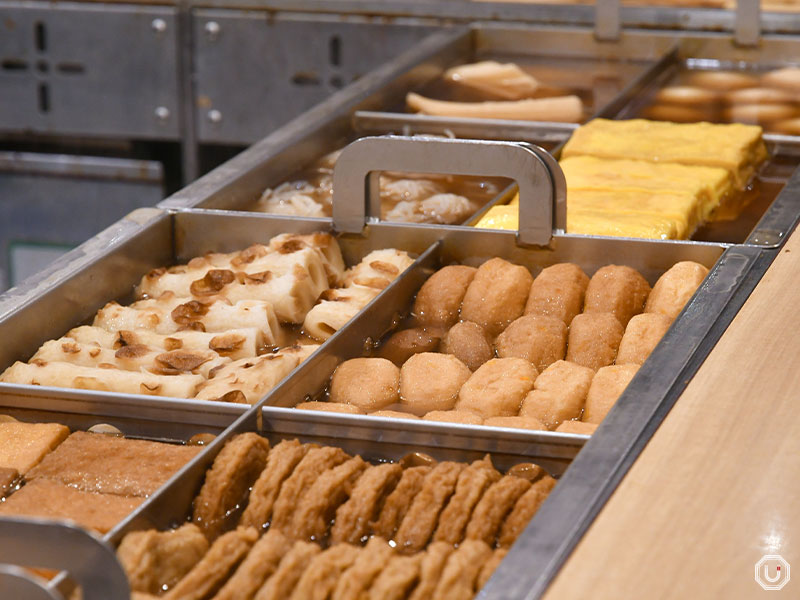
Inside the counter, rows of simmering oden ingredients are laid out in pots. Just watching the neatly arranged oden is a treat in itself.
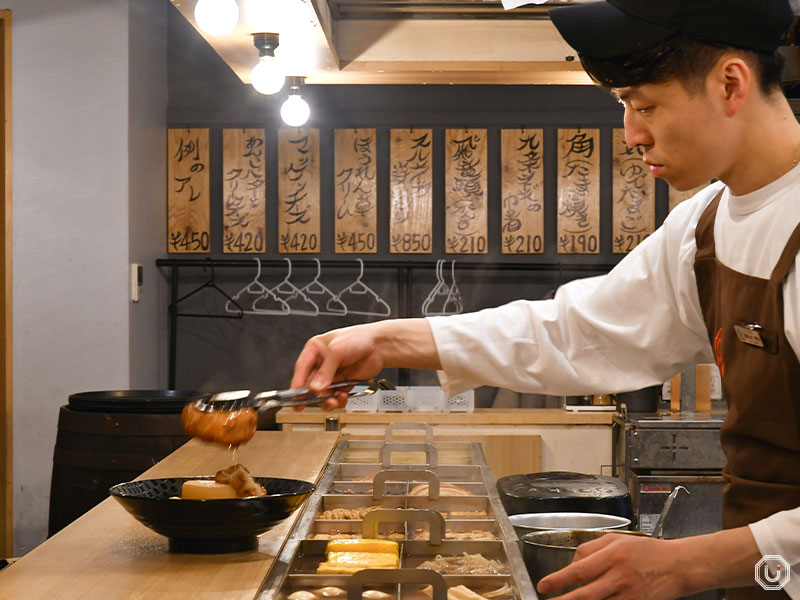
When you order, staff serve the hot oden pieces directly from the pot. One of oden’s charms is how quickly it can be served after ordering—perfect for when you just want a quick bite or a light drink.
A refined dashi using conger eel
Another charm of oden is how the base dashi broth blends with the flavors of the ingredients as they simmer together.
The taste of the broth shows regional characteristics and trends. The individuality of each restaurant’s oden is expressed not only in the variety of ingredients but also in the broth they’re simmered in.
While many shops use a base of bonito flakes, kombu (kelp), or mackerel, Choi Oden stands out for using hamo (daggertooth pike conger eel), a prized fish often associated with fine cuisine, especially in Kyoto.
The broth made from hamo caught in the Buzen Sea of Fukuoka Prefecture has an exquisite umami that is clean yet complements any ingredient. It’s an original flavor that is neither Kansai-style nor Kanto-style.
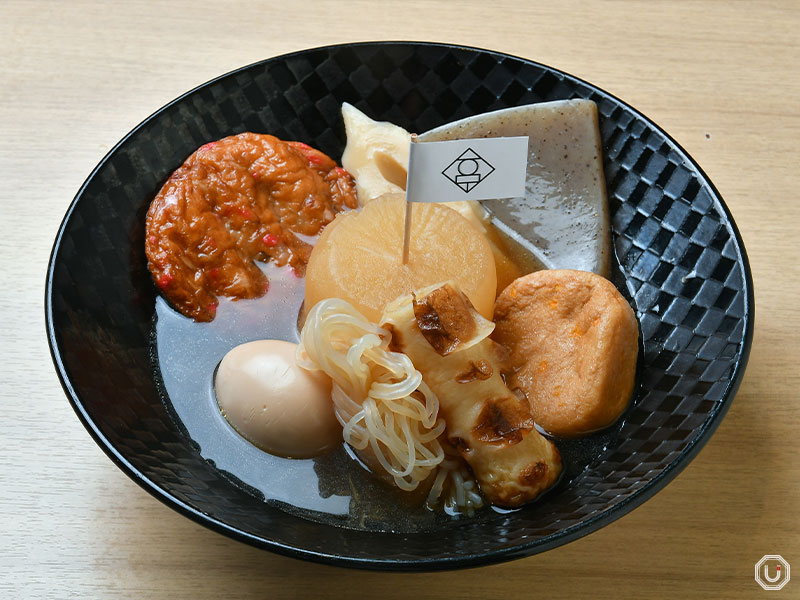
(from top left) “紅しょうが天,” beni-shōga ten (pickled red ginger tempura) 286 JPY, “ちくわぶ,” chikuwabu (wheat gluten cake) 165 JPY “こんにゃく,” konnyaku (firm jelly made from konjac yam) 165 JPY, (center) “大根,” Daikon radish 275 JPY, (from bottom right) “丸(ゆでたまご),” Boiled egg 253 JPY, “結び白滝,” musubi shirataki (tied konnyaku noodles) 198 JPY (tax included), “ちくわ,” chikuwa 165 JPY, “飛龍頭(がんも),” Ganmo (tofu fritter) 198 JPY (all prices are tax included)
Classic oden items are also available, such as daikon radish, which is juicy and releases flavorful broth with each bite; chikuwabu, known for its chewy texture and deep umami flavor; and pickled red ginger tempura, which adds a zesty accent.
A variety of oden ingredients come together in a single dish, unified by the flavorful broth. The true charm of oden lies in enjoying the diverse tastes and textures of its ingredients.
Enjoy new oden flavors with a little extra!
Choi Oden invites customers to discover new ways to enjoy oden with special add-on toppings.
There are three types of additional toppings: “Mentaiko butter,” “Blue Cheese,” and “Genovese,” which can be enjoyed with your favorite oden for an additional 110 JPY (tax included) each.
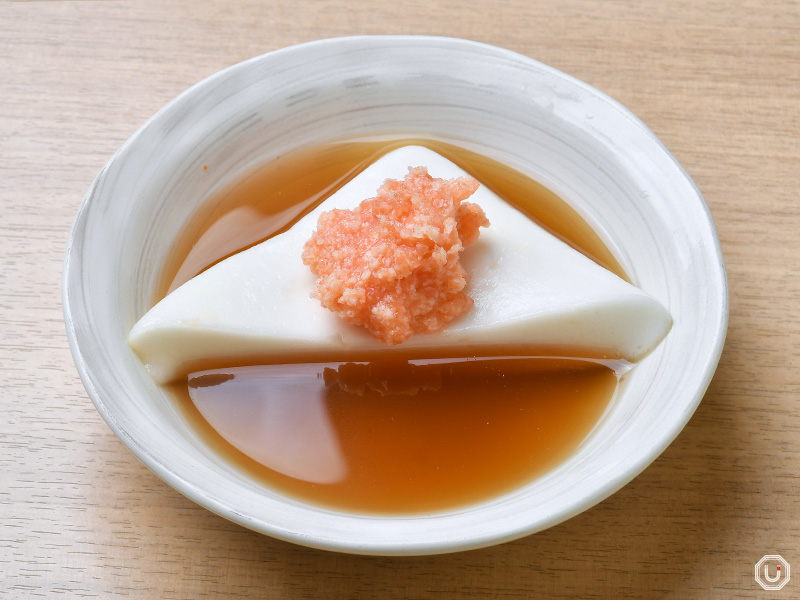
“はんぺん,” Hanpen 165 JPY (tax included), “明太バター,” Mentaiko butter topping 110 JPY (tax included)
For example, adding the mentaiko butter to the mild-tasting hanpen infuses it with the richness of butter and the spicy kick of cod roe, creating a much deeper, more flavorful bite.
Mentaiko butter is also a recommended topping for chikuwabu, musubi shirataki, and other oden ingredients.
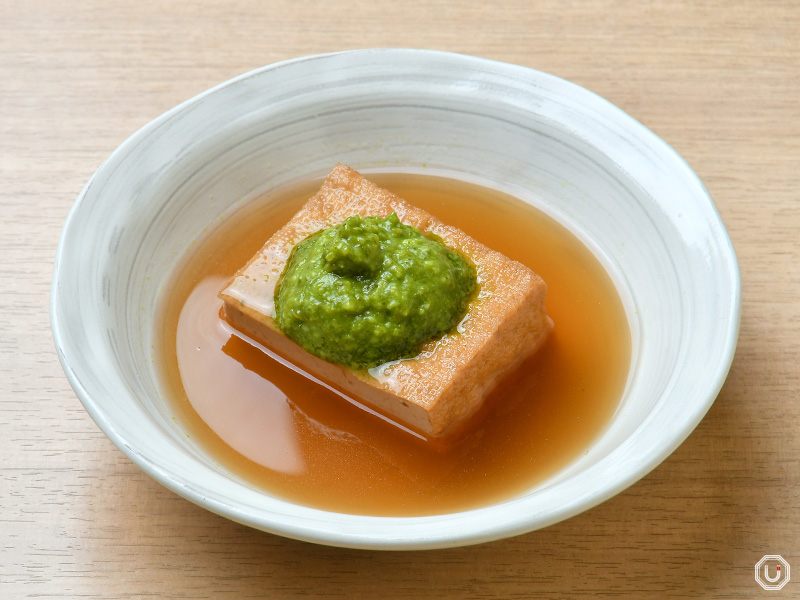
“厚揚げ,” Deep-fried tofu (currently not available), “ジェノベーゼ,” Genovese topping 110 JPY (tax included)
The Genovese topping’s basil flavor is nicely brought together by the hamo broth, creating a fusion of Japanese and Italian cuisines.
The Genovese topping is recommended for pairing with musubi shirataki or chikuwa. Especially with the musubi shirataki, it can feel like eating Genovese pasta!
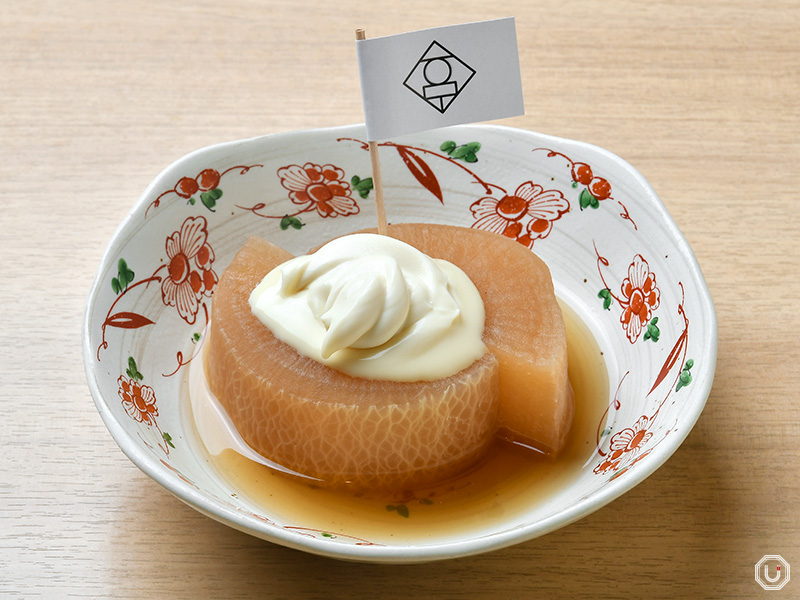
“大根,” Daikon radish 275 JPY (tax included), “ブルーチーズ,” Blue Cheese topping 110 JPY (tax included)
Try adding a touch of blue cheese to a classic like daikon. It also pairs well with boiled eggs, chikuwa, and konnyaku.
The umami from the cheese blends beautifully with the broth, giving each bite an extra punch.
Of course, beyond these suggested pairings, there’s also the fun of finding your own favorite combinations. So mix and match as you please.
Surprising ingredients unique to Choi Oden
Choi Oden also offers some surprising oden ingredients beyond the usual fare.
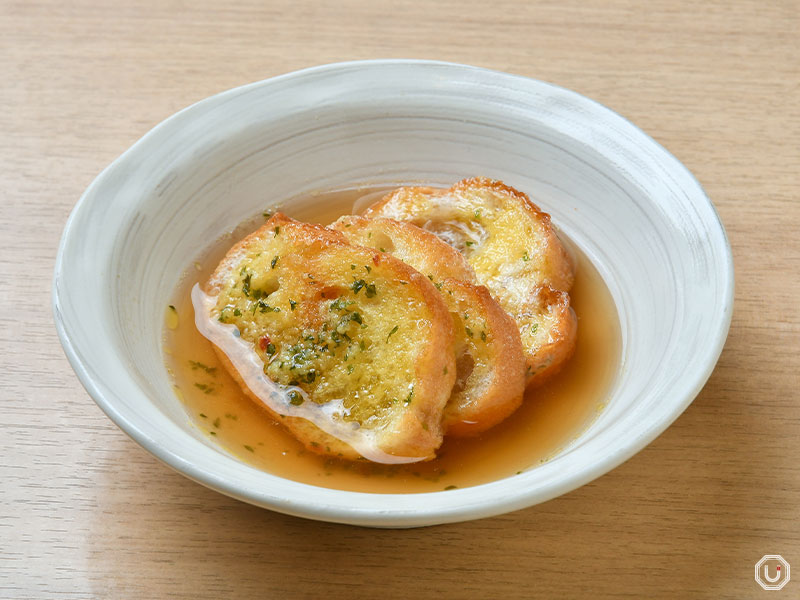
“ガーリックトースト,” Garlic Toast 210 JPY (tax included)
This unique dish features garlic toast soaked in oden broth.
You might think, “Do toast and oden broth go well together?” However, when the oden broth is absorbed into the crispy garlic toast, it creates a flavor similar to French onion soup.
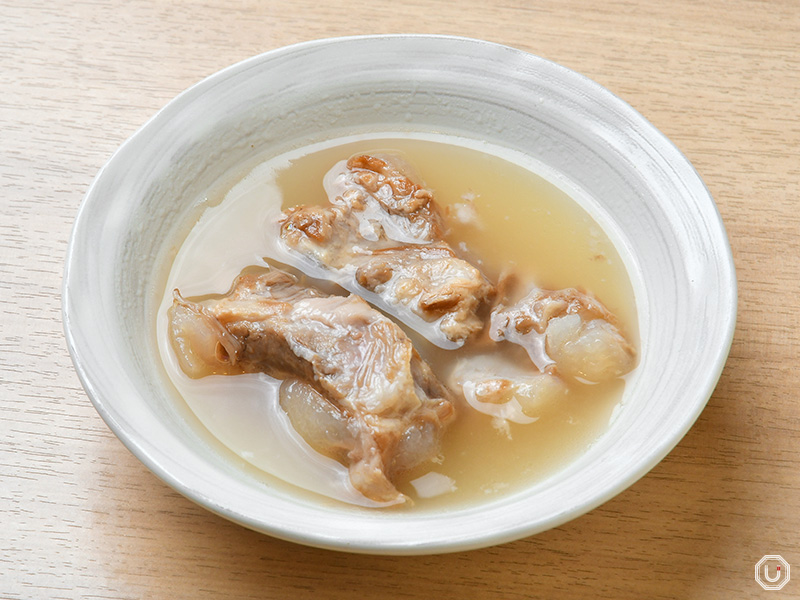
“軟骨ソーキ,” Cartilage Sōki 418 JPY (tax included)
The “Cartilage Sōki” (pork ribs with cartilage) is simmered until so tender it can easily be cut with chopsticks. The combination of the the delicate flavor of the hamo broth and the rich umami of the meat creates a flavor that goes well with alcohol.
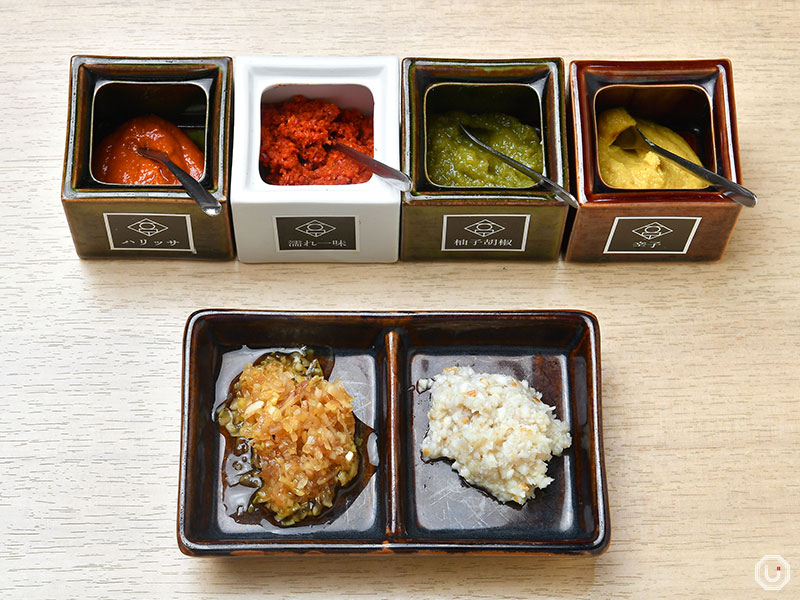
(from from top left), “ハリッサ,” harissa, “濡れ一味,” Nure Ichimi (chili pepper paste),“柚子胡椒,” yuzu koshō (paste of chili peppers and yuzu peel), “辛子,” karashi (spicy Japanese mustard),(from bottom left) “ネギ醤油,” green onion soy sauce, “山わさび,” mountain wasabi
When it comes to standard condiments for oden, karashi (spicy Japanese mustard) comes to mind. However, at “Choi Oden,” negi shōyu (green onion soy sauce) and mountain wasabi are provided as otōshi (mandatory appetizer doubling as a service charge).
Additionally, on the table are harissa, ichimi tōgarashi (chili powder), yuzu koshō (paste of chili peppers and yuzu peel), and karashi.
At “Choi Oden,” in addition to the optional paid toppings, you can also customize your oden with a variety of free seasonings and garnishes to find the flavor that suits you best.
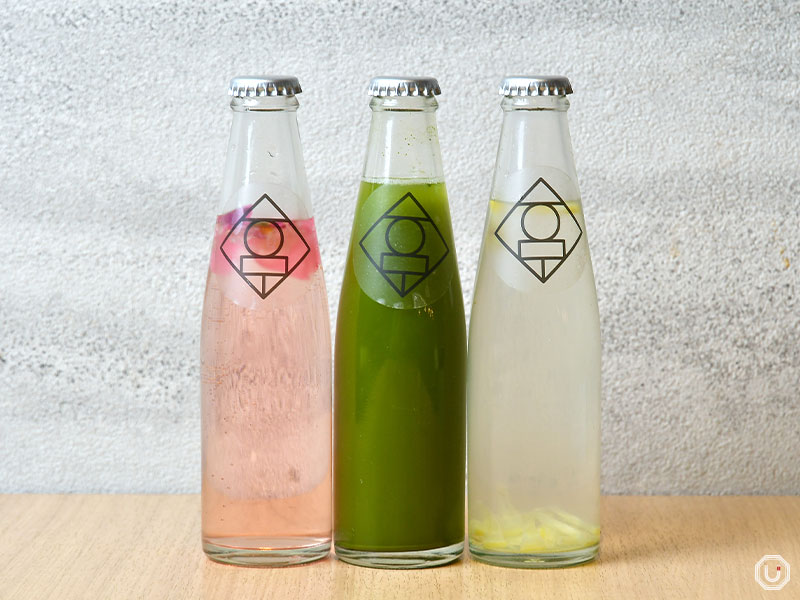
(left) “お花のサワー ~バラとエルダーフラワー~,” Floral Sour – Rose & Elderflower 484 JPY (tax included), (center) “『おでんのための究極の緑茶ハイ,” The Ultimate Green Tea Highball for Oden 506 JPY (tax included), (right) “ミントレモンサワー,” Mint Lemon Sour 484 JPY (tax included)
Be sure to check out the store’s original alcoholic drinks, too. These handcrafted sours are developed exclusively for Choi Oden, offering flavors you won’t find anywhere else.
In particular, be sure to try the “Ultimate Green Tea Highball for Oden,” made with a specially crafted green tea that was carefully analyzed and blended for this unique pairing.
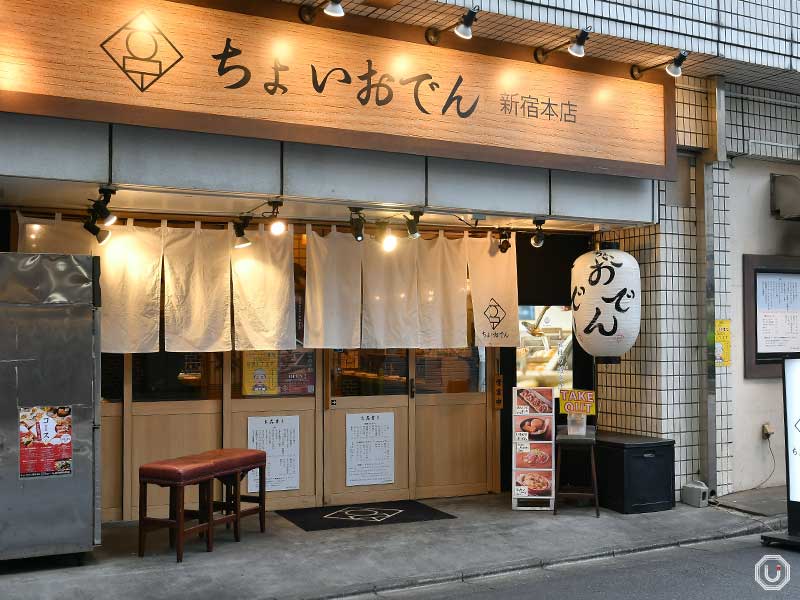
At Choi Oden, you can enjoy classic oden while also discovering your own new way to enjoy it.
Whether you stop by for a quick bite or settle in for a more leisurely meal, you’re sure to come away with a deeper appreciation for the world of oden.
Information
| Store name | ちょいおでん 新宿本店 Choioden Shinjuku Honten |
|---|---|
| Address | Sanko Park Building 1F, 7-3-1 Nishi-Shinjuku, Shinjuku-ku, Tokyo
|
| Access |
Seibu-Shinjuku Station 3-minute walk from Seibu-Shinjuku Station Main Exit
Shinjuku Station(SJK) 7-minute walk from Shinjuku Station West Exit
|
| Phone number | 03-5331-3341 |
| Reservations | Accepted Phone, Tabelog, Hot Pepper Gourmet |
| Payment |
|
| Service charge/Table charge | Condiment charge 250 JPY |
| Hours | Mon-Sat. & days before nat’l holidays 15:00-2:00 AM(last order: food 1:15 AM, drinks 1:30 AM) Sun. & nat’l holidays 15:00-23:00(last order: food 22:15, drinks 22:30) |
| Closed | No fixed holidays Unscheduled holidays |
| Seating | 62 seats 15 counter seats, 47 table seats |
| Smoking | All seats are non-smoking |
| Official website | https://choioden.com/shinjukuhonten/ |
| Other information |
|
※Menu contents, prices, store information, etc. are current as of May 2025.
